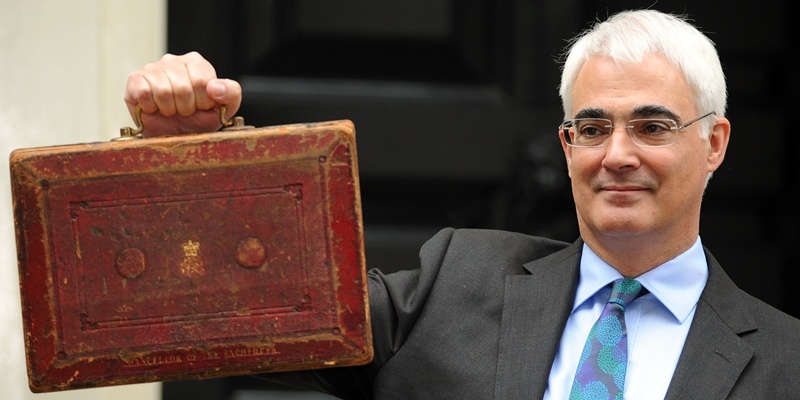Former Chancellor Alistair Darling has suggested much greater financial powers could be handed to Holyrood if Scots reject independence.
In a development that suggests all Unionist parties now view more devolution as vital to winning the independence referendum, the Labour MP cited control over income tax as something it would be ”relatively easy” to transfer to Edinburgh.
His comments follow Prime Minister David Cameron pledging strengthened powers are ”on the table” if voters preserve the 300-year-old link with England.
”I don’t think anybody would argue that the status quo is satisfactory,” said Mr Darling, who also confirmed he will play a ”major role” in the fight to keep Scotland in the United Kingdom. ”It was fine in 1998 (but) things have moved on. The constitution is always something you need to look and see what’s best.”
But, like the Prime Minister, Mr Darling said details of the increased devolution settlement should wait until after the independence referendum the SNP Government plans to hold in autumn 2014.
He said: ”If Scots vote to leave the UK then there is no point in discussing how to improve devolution.”
Discussing what powers could be devolved, Mr Darling said: ”Income tax is easier because it is easy to identify and the Revenue knows who Scottish taxpayers are. It would be relatively easy to implement.”
Mr Darling, the Edinburgh South West MP, also argued for a referendum sooner than First Minister Alex Salmond’s proposed 2014 timetable a view shared by the UK Government.
He said: ”If you want to get on to further devolution more quickly then why don’t we have the referendum more quickly. Why not next year?”
Mr Darling also claimed an independent Scotland keeping sterling would result in the country ”going cap in hand” to the UK Treasury, due to the Bank of England being the lender of last resort.
The intervention is being seen as further evidence unionists believe increased powers for the Scottish Parliament could be enough to convince ”soft” nationalists to vote against complete independence.
But SNP MSP Humza Yousaf said Mr Darling’s comments had taken Labour into ”no man’s land”.
He said: ”They are now in the same camp as David Cameron’s Tories, in telling the people of Scotland they can only be allowed to consider more powers for the Scottish Parliament if they vote no to independence but failing completely to spell out what those powers might be.”
Meanwhile, Scottish Lib Dem leader Willie Rennie, who supports home rule, said he would work with other parties to come up with plans for further devolution.
He said: ”I want to see a parliament that raises what it spends so Scotland can determine our own destiny on the domestic agenda. That would give us more autonomy whilst retaining the benefits of sharing risk and opportunity with the rest of the UK.
”We must not leave Scotland’s future to be dictated by one political party who want us to opt out.”
A spokesman for Mr Salmond repeated calls for Mr Cameron to explain his plans for more devolution before his government’s consultation on the referendum finishes on May 11.
Photo by Fiona Hanson/PA Archive
